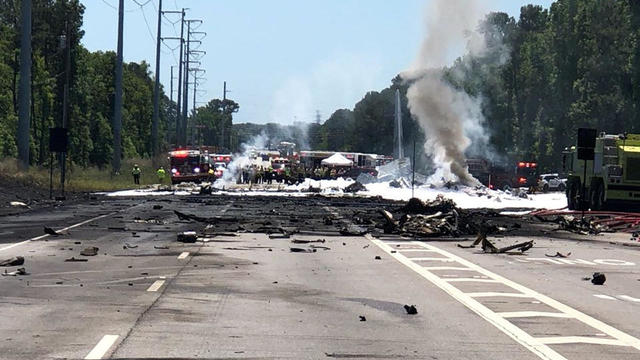
Deadly Savannah plane crash highlights increase in military accidents
An analysis of accident data obtained by the Military Times found a nearly 40 percent increase in accidents between 2013 and 2017
Watch CBS News

David Martin has been CBS News' national security correspondent, covering the Pentagon and the State Department, since 1993. In that capacity, he has reported virtually every major defense, intelligence and international affairs story for the "CBS Evening News," as well as for other broadcasts, including "60 Minutes" and "48 Hours." He also contributed to "60 Minutes Wednesday."
During the invasion of Afghanistan and the war in Iraq, Martin's in-depth knowledge of how the State Department, intelligence community and military operate, both on the battlefield and in Washington positioned him as the "big picture" reporter for CBS News. Utilizing his own sources and reports from CBS News correspondents in the region and around the world, as well as in Washington, he explained and assessed the military's strategies and operations for viewers.
Martin broke several significant stories before and during the Iraq war. He was the first to report on the opening night of the war, that the U.S. was launching a strike on a palace bunker in southern Baghdad in an attempt to take out Saddam Hussein. Martin also broke the story of the military's "shock and awe" strategy for its initial strike on Baghdad. During a trip to Iraq in May 2003, he was the first journalist to visit and report on Dora Farms, where Saddam was said by the CIA to have been hiding on the opening night of the war.
Martin has received several Emmys, most recently in 2012 for his story "Starting Over." He has also received two Alfred I. duPont-Columbia University Awards (2002 and 2004) for his body of work, most of which has appeared on the "CBS Evening News" and "60 Minutes Wednesday."
Regarding the first Alfred I. DuPont-Columbia University Award, the award committee said that his "consistently excellent reporting on the beat of national security hit its peak this year....break[ing] news on a wide range of defense and security stories with details that only experience and doggedness can ferret out. This is exemplary reporting that repeatedly breaks through the barriers of official statements."
In awarding the second DuPont, the committee said, "David Martin's reports on the Pentagon, the military build-up to the Iraq war and on the war itself demonstrate his exceptional grasp of national security issues. Teamed with his long-time producer, Mary Walsh, Martin consistently breaks new information with clear reporting on the Pentagon's goals. He exemplifies the role of a journalist: to measure what we are being told against what we find out."
Martin also received the 2004 Joan S. Barone Award for excellence in Washington-based national affairs and public policy reporting awarded by the Washington Radio & Television Correspondents' Association.
He joined CBS News as its Pentagon correspondent in 1983. Martin's duties later expanded to include the State Department and intelligence beats.
Before that, he covered defense and intelligence matters for Newsweek magazine from its Washington bureau (1977-83). Martin was a reporter with the Associated Press in Washington (1973-77), covering the FBI and CIA. He also was a member of the AP special assignment team (1977).
Martin began his journalism career as a researcher for CBS News in New York in 1969. He then became a news writer with the AP broadcast wire (1971-72) and a fellow at the Washington Journalism Center (1973).
Martin is the author of two books, "Wilderness of Mirrors" (Harper & Row, 1980), an account of the secret wars between the CIA and KGB, and "Best Laid Plans: The Inside Story of America's War Against Terrorism" (Harper & Row, 1988).
He was born July 28, 1943, in Washington, D.C. He graduated from Yale University in 1965 with a bachelor's degree in English. During the Vietnam War, Martin served as an officer aboard a U.S. Navy destroyer.
Martin and his wife, Dr. Elinor Martin, live in Chevy Chase, Maryland. They have four children.

An analysis of accident data obtained by the Military Times found a nearly 40 percent increase in accidents between 2013 and 2017
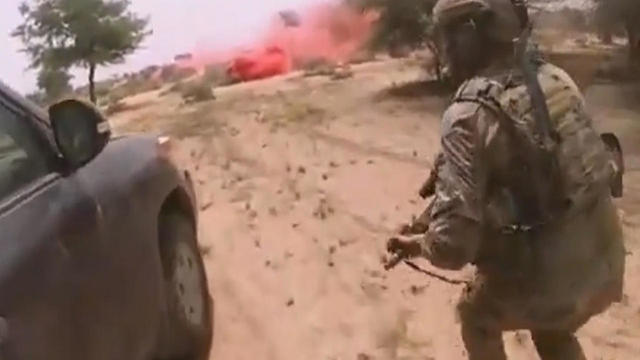
The team had been in Niger for barely a month and had not done the traditional in-person turnover with the unit they were replacing
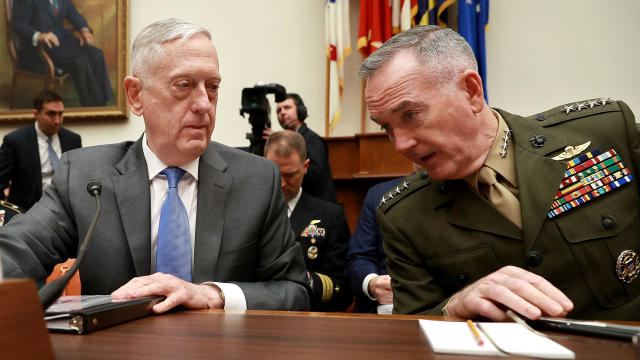
A strike would come less than a week after a suspected chemical weapons attack that the White House blames on Syria and Russia
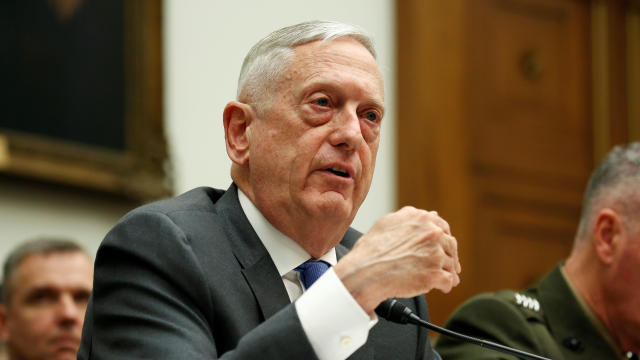
The president of France said there's proof chemical weapons were used by the Assad regime, but in testimony before Congress, Defense Secretary James Mattis seemed more cautious
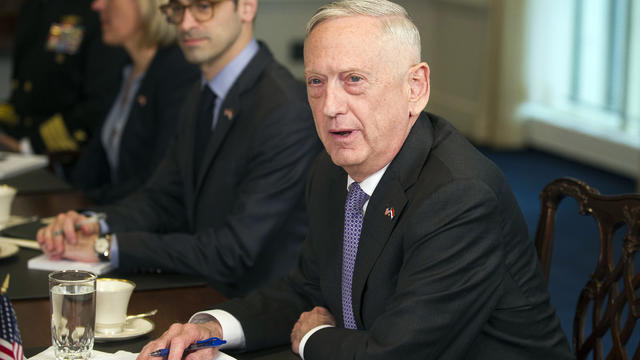
Defense Secretary James Mattis said no final conclusions have been reached about possible U.S. action

After meeting with senior military leaders, President Trump canceled a weekend trip to South America to remain at the White House

Thanh Cong Phan, 43, was arrested in connection to suspicious packages mailed to Washington military bases
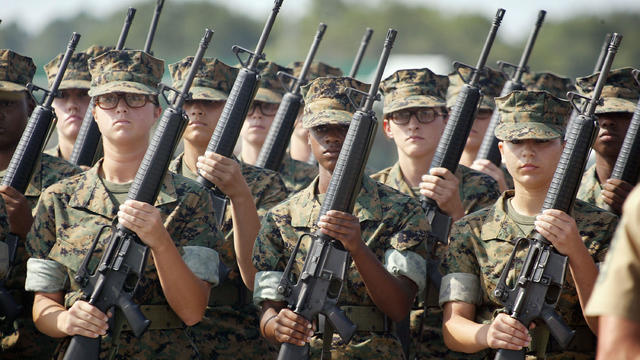
A law passed last year makes it a crime for a member of the military to distribute intimate photos without a person's consent
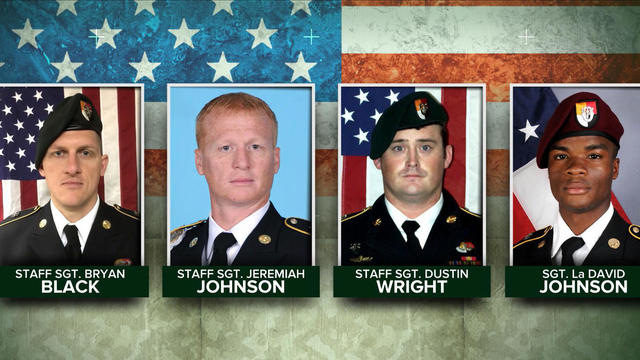
Pentagon has yet to release full account of the ambush, but graphic video purportedly depicts how outgunned and cut off the Americans were
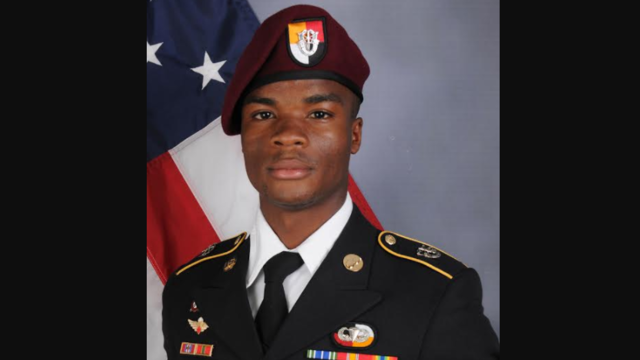
Coming just one month before his death, the small talk between Sgt. La David Johnson and one of his commanders is especially poignant

President Trump has wanted a military parade after seeing one in France, but not everyone in Washington is on board with the idea

"I once lived as a beggar in North Korea, but now, I'm in the capital of the U.S. as a guest to President Trump," Ji Seong-ho says
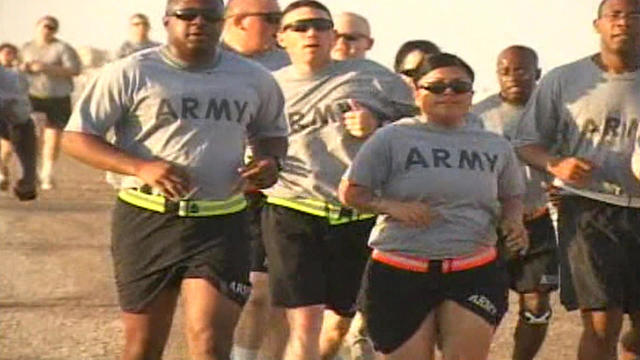
Service members working out in this digital age have unwittingly produced a map of their locations and activities worldwide
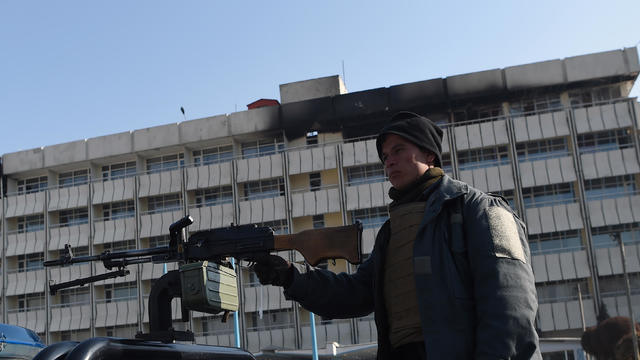
A suicide squad of six Taliban fighters terrorized the Intercontinental Hotel for 14 hours before the last of them was killed
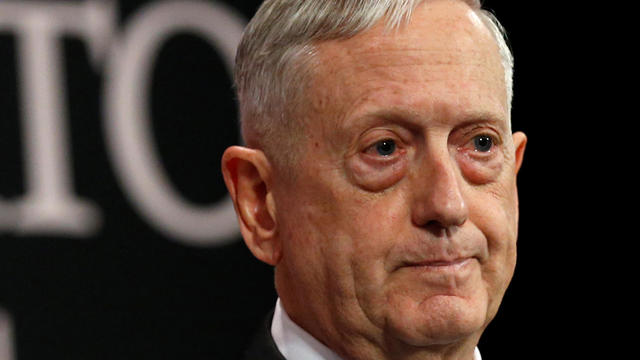
The focus is turning to maintaining a military advantage over China and Russia